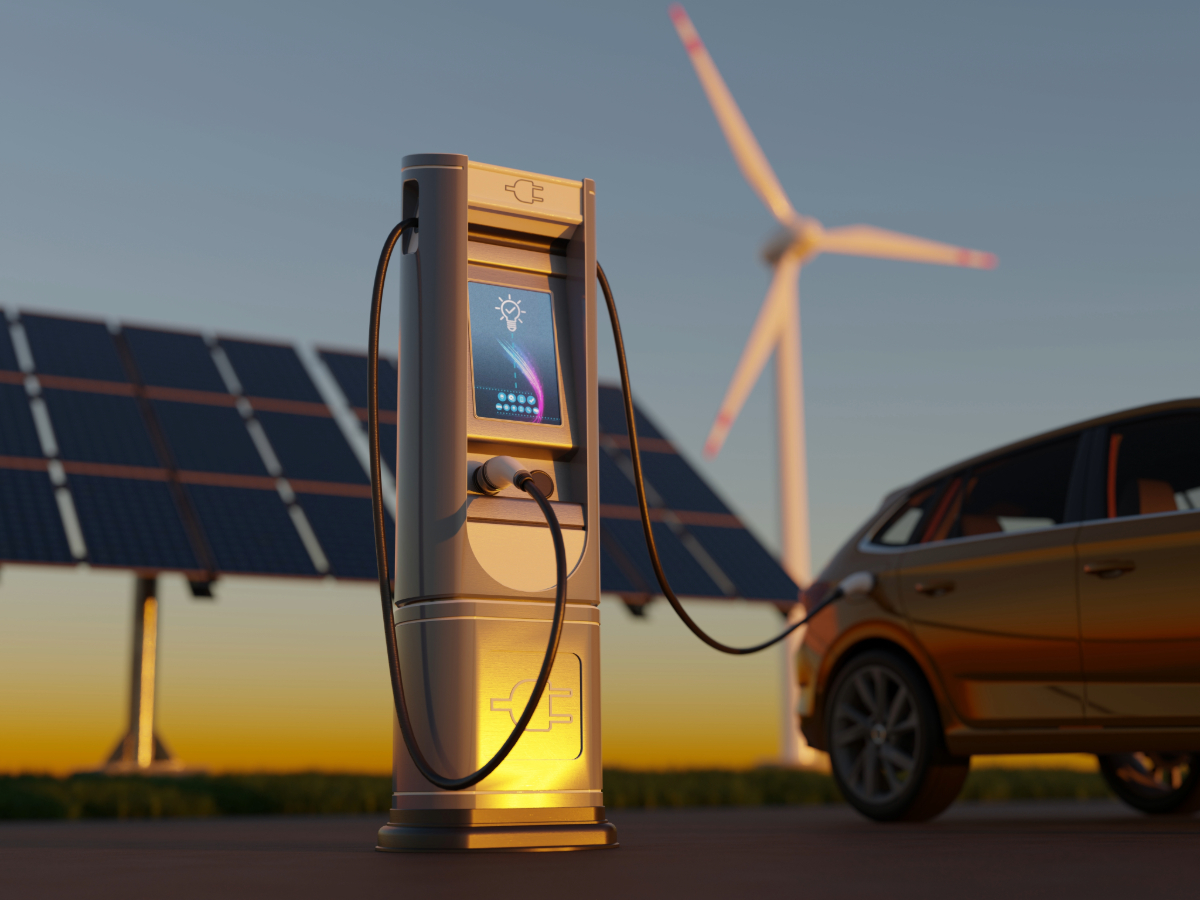The 38th International Electric Vehicle Symposium & Exposition
A deep dive into the future of electromobility
Publication date: 28 March 2025
Nicklas Karlsson, Automotive expert at AFRY specialising in electromobility, shares his vision for the future and highlights the transformative impact of electromobility technology on the automotive industry. Karlsson discusses trends and upcoming innovations, changes in propulsion systems, and how these advancements will shape the vehicles of tomorrow. His insights provide an understanding of how electrical propulsion propels the automotive sector towards a more sustainable and technologically advanced future.

How do you foresee the development of electromobility technologies within the Automotive sector in the coming years?
NK// The importance of charging performance is on the rise, emphasising sustainability in both electric machines and batteries. Recycling requirements, such as the implementation of a battery passport and optimisation of existing technologies, are crucial trends. For heavy-duty vehicles, higher voltage systems and various techniques for shorter charging times are being explored. Electrification is becoming more widespread, extending beyond premium segments, with less emphasis on range and more focus on performance.
In the realm of heavy-duty vehicles, Nicklas says the focus is on higher voltage systems and various technologies to enable shorter charging times for large energy storage. Technology is becoming more ubiquitous, with non-premium vehicles gaining attention, highlighting a shift away from range and performance to broader market considerations.
How is electrification being integrated across different vehicle types?
NK// In light vehicles, batteries and electric drivetrains have become integral components of each generation's design. For heavy-duty vehicles, modularization is prominent, facilitating different vehicle configurations to support diverse transportation solutions. Connectivity is integral across all vehicle systems, including batteries and drivetrains, incorporating features like diagnostics, energy optimization, and smart functions such as haptic accelerators.
Recent advancements in battery systems
Efficiency has always driven electrification, with gradual optimisation toward safer and more energy-efficient batteries while maintaining the same basic chemistry (Li-ion). The anticipated arrival of solid-state batteries is expected to provide more stable and energy-dense options, allowing for longer ranges. Sustainability is a major focus, covering recycling, raw material production, manufacturing, and alternative cell chemistries.

How do current and future government policies impact the development and adoption of electromobility technologies in vehicles?
NK// Current and future legislation, such as banning combustion vehicles in city centers and initiatives like the "battery passport," aim to enhance the environment and ensure a sustainable battery lifecycle. Acts like the IRA and CRMA have broader economic and security implications, impacting investments in electromobility technologies.
What challenges do you currently see in the electromobility technologies industry, and how can these challenges be overcome?
NK// Total Cost of Ownership (TCO) for energy storage is critical for user cost-effectiveness. New chemistries and advanced battery monitoring systems are necessary. Infrastructure expansion is essential for practical electric vehicle use, especially for those without home charging capabilities. Despite a significant decrease in battery costs, electric vehicles struggle to compete on price.
TCO remains a paramount concern, coupled with sustainable battery usage over its lifetime. Enhancements in battery recycling technologies are imperative.
How can electromobility technologies contribute to reducing the environmental impact associated with vehicles?
NK// Given that transportation contributes significantly to climate impact, with road vehicles playing a substantial role, electrification becomes a crucial piece of the puzzle. Electrification not only addresses climate concerns but also offers a cleaner and quieter local environment.
How does AFRY collaborate with other stakeholders in the industry to promote electromobility technologies?
NK// AFRY engages primarily through its diverse range of assignments with major automotive manufacturers in Sweden, offering services in design, technical expertise, calculations, sustainability analyses, market research, and more. The company also supports educational initiatives at universities and colleges, welcoming students for thesis work in the field of electromobility.
Read more here.
AFRY at EVS 38
Don’t miss this chance to gain insights into the future of electromobility when AFRY’s experts dive into the latest trends in battery technology, vehicle electrification, and charging infrastructure.
Registrations for AFRY's Satellite Symposium Session is available upon registering for EVS38.